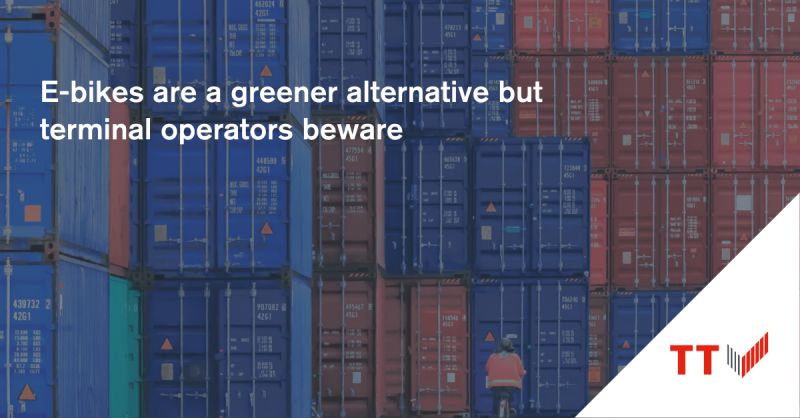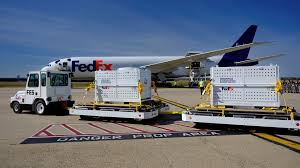Decarbonisation push sees e-bikes rise in ports, but TT Club warns of safety and fire risks.

As ports and terminals intensify efforts to decarbonise, the use of battery-powered e-bikes, e-scooters, and e-motorbikes is gaining traction. While these vehicles offer cleaner and cost-effective alternatives to diesel-powered vehicles, TT Club has raised serious safety concerns for facilities not designed for such vehicles.
Cargo handling insurance specialist TT Club highlights that smaller, less visible vehicles like e-bikes pose unique challenges, including traffic management risks and increased chances of human-machine collisions. Terminal surfaces, designed for heavy loads, often present uneven conditions hazardous for two-wheelers, particularly around wet rail crossings or cargo spills.
Neil Dalus, TT Club’s Risk Assessment Manager, cautioned about the instability of two-wheelers on such terrains and the need for careful planning. Dalus emphasised that integrating e-bikes into port operations requires added traffic safety measures, including licensing, training, and PPE mandates.
Fire risks during vehicle charging add another layer of concern. TT Club advises operators to conduct thorough due diligence on vehicle procurement and charging infrastructure while implementing proper fire risk assessments for safe operations.
“Balancing innovation with safety is critical for a sustainable cargo handling industry,” Dalus stated, urging operators to carefully plan the integration of these vehicles into their facilities.
TT Club, established in 1968, is a leading provider of mutual insurance and risk management services to the transport and logistics industry, serving over 1400 members globally.











